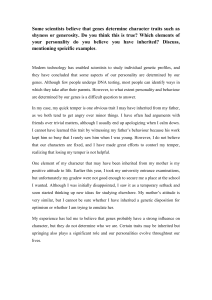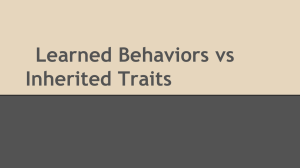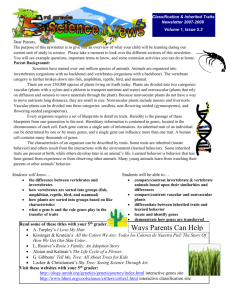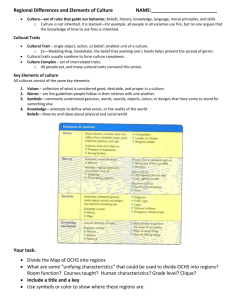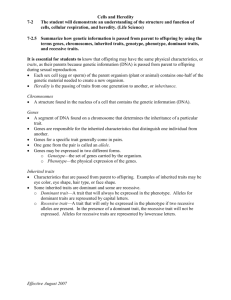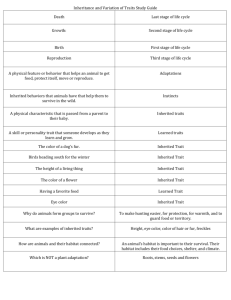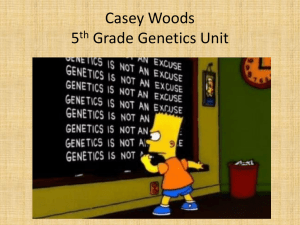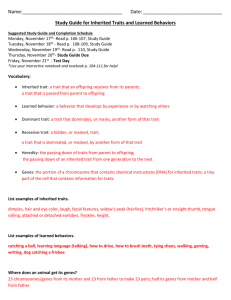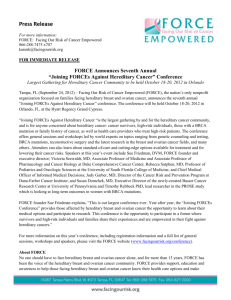Hereditary influences
advertisement
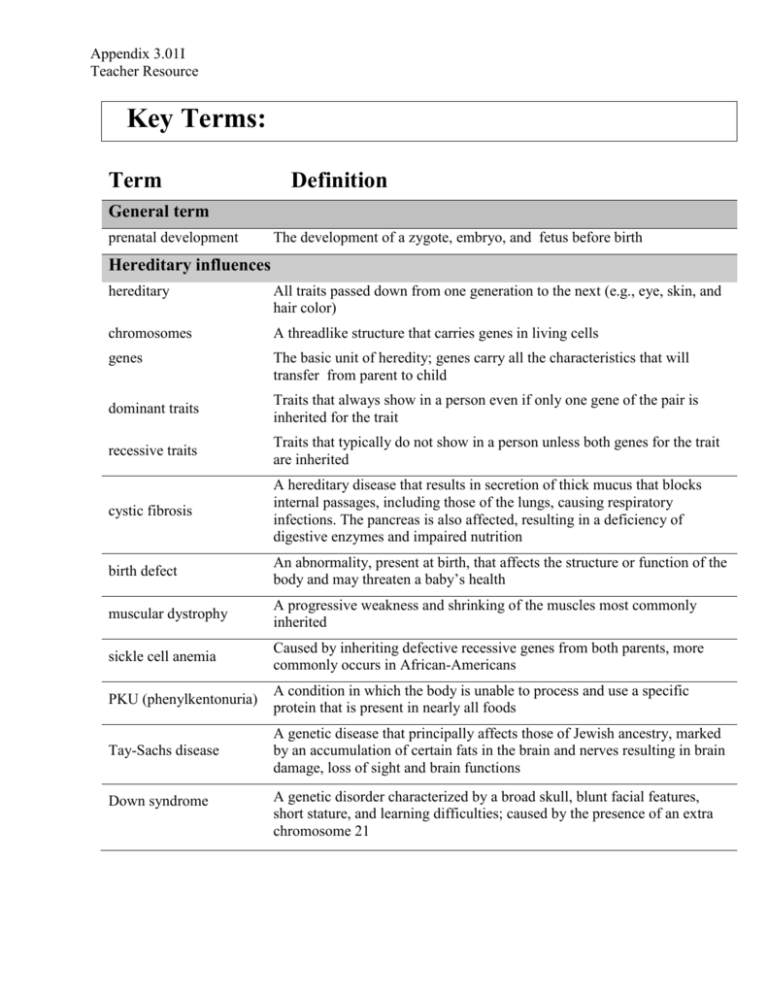
Appendix 3.01I Teacher Resource Key Terms: Term Definition General term prenatal development The development of a zygote, embryo, and fetus before birth Hereditary influences hereditary All traits passed down from one generation to the next (e.g., eye, skin, and hair color) chromosomes A threadlike structure that carries genes in living cells genes The basic unit of heredity; genes carry all the characteristics that will transfer from parent to child dominant traits Traits that always show in a person even if only one gene of the pair is inherited for the trait recessive traits Traits that typically do not show in a person unless both genes for the trait are inherited cystic fibrosis A hereditary disease that results in secretion of thick mucus that blocks internal passages, including those of the lungs, causing respiratory infections. The pancreas is also affected, resulting in a deficiency of digestive enzymes and impaired nutrition birth defect An abnormality, present at birth, that affects the structure or function of the body and may threaten a baby’s health muscular dystrophy A progressive weakness and shrinking of the muscles most commonly inherited sickle cell anemia Caused by inheriting defective recessive genes from both parents, more commonly occurs in African-Americans PKU (phenylkentonuria) A condition in which the body is unable to process and use a specific protein that is present in nearly all foods Tay-Sachs disease A genetic disease that principally affects those of Jewish ancestry, marked by an accumulation of certain fats in the brain and nerves resulting in brain damage, loss of sight and brain functions Down syndrome A genetic disorder characterized by a broad skull, blunt facial features, short stature, and learning difficulties; caused by the presence of an extra chromosome 21 Appendix 3.01I-continued Teacher Resource Key Terms: Term Definition multiple births Giving birth to more than one child at a time hyperovulation An inherited trait that may produce fraternal twins Environmental influences environmental Things and people in a person’s surroundings (ex. mother’s health, family, friends, home, community, life experiences) over-the-counter medications A medication that can be purchased by anyone off the shelf at the pharmacy without a prescription fetal alcohol syndrome A condition that babies may be born with when the mother drinks during pregnancy; symptoms include shaking, crying… rubella A virus that can complicate pregnancy, causing miscarriage, stillbirth or congenital disorders; also called German Measles Hereditary and environmental influences cerebral palsy A condition caused by brain damage around the time of birth and marked by lack of muscle control and paralysis especially in the limbs cleft lip/cleft palate An upper lip congenitally divided into two parts spina bifida and hydrocephalus A congenital condition in which part of the spinal cord or meninges protrudes through a cleft in the spinal column, resulting in loss of voluntary movement in the lower body. An increase of cerebrospinal fluid around the brain, resulting in an enlargement of the head in infants, because the bones of the skull are still unfused and the fluid can be drained into the abdominal cavity. Appendix 3.01J Assessment Sample Test Questions 1. An infant has a birth defect because the mother smoked during pregnancy. Which influence on development is this? A. Environment B. Growth C. Heredity D. Self-concept 2. Which is an example of a hereditary influence on development? A. Aaron was exposed to AIDS and is now HIV-positive. B. Brenda was born with cystic fibrosis. C. Clara took over-the-counter drugs while she was pregnant. D. Dana was exposed to radiation and born blind. 3. Which is an example of a birth defect that has both hereditary and environmental influences? A. Terry is in and out of the hospital with sickle cell anemia B. Tommy’s blood does not clot because of hemophilia C. Thomas cannot pick out his clothes because he has color blindness D. Troy has a large hole in his lip from cleft lip
